Program Committee
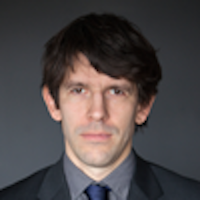
18 years ago, while completing his diploma at the Max Planck institute for Computer Science, Matthias Fischmann implemented his thesis in Haskell and has never looked back from functional programming since. His more recent projects in Haskell include an interactive platform for schools and a platform for identity management. He received his doctorate from Berlin's Humboldt-Universität. These days, he works for Wire as a software architect.

Matthias Neubauer works as a software architect with SICK AG in Waldkirch (Breisgau), Germany. His focus is the co-design of hard- and software for new vision sensors. He researched new paradigms in web programming and the development of various testing tools and uses aspects of funktional programming in C++ environments.
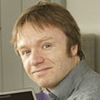
Michael Sperber is the C*O of Active Group GmbH. He has been working with functional programming to teach, research, and develop for the past 20 years and has authored several publications on the matter. He is a member of the editorial board of the Journal of Functional Programming and the steering committee of the international Workshop on Functional Art, Music, Modeling and Design (FARM). He is a co-author of the blogs funktionale-programmierung.de.
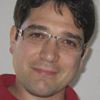
Stefan Wehr is a professor for Programming, Algorithms and Data structure with Hochschule Offenburg.
Prior to that, he designed and developed complex applications and distributed systems for medilyse GmbH. Most of these were implemented in Haskell. For his doctoral dissertation, he worked on the integration of object-oriented and functional programming languages.
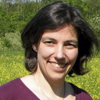
Nicole Rauch is a freelance software engineer and software engineering coach with a background in compiler building and formal verification methods. Her focus is on specification by example and domain-driven design as well as the modernisation of legacy code applications. Her secret love is functional programming. She is part of several teams hosting developer conferences and was among the folks who initiated Softwerkskammer, a German language community for software craftsmanship, and a regional common interest group in Karlsruhe. During her free time, she works on the web platform for Softwerkskammer, implemented in node.js.
Scientific advisory board
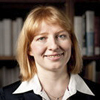
Annette Bieniusa read mathematics, Latin and computer science in Saarbrücken, Leeds and Freiburg. She completed her doctorate on Software Transactional Memory in Freiburg (2011) and postdoctoral studies with INRIA (Paris) and is now working as an Akademische Rätin (teaching professor) for TU Kaiserslautern. Her research focuses on the semantics of distributed and concurrent systems, especially (geo-)replication, synchronisation and concepts for programming languages.
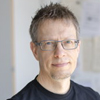
Torsten Grust is a professor for Computer Science with Universität Tübingen, and has been chair for database systems since 2008. Prior to his engagement in Tübingen, Torsten Grust was a professor for database systems with TU München and TU Clausthal. Prof. Grust's research is focussed on the design, translation, optimization and analysis of various database languages. Much of his work falls in the liminal space between database systems and programming language technology. His department is developing technologies to transform relational database systems into scalable runtime environments, even when faced with non-relational queries or programming languages.
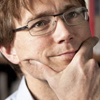
Peter Thiemann is a professor of computer science with Universität Freiburg, where he leads the research group for programming languages. He is a leading expert on functional programming, partial evaluation, domain-specific languages and various other areas of software technology. His current area of research is in statistical and dynamic methods of analysis for JavaScript.